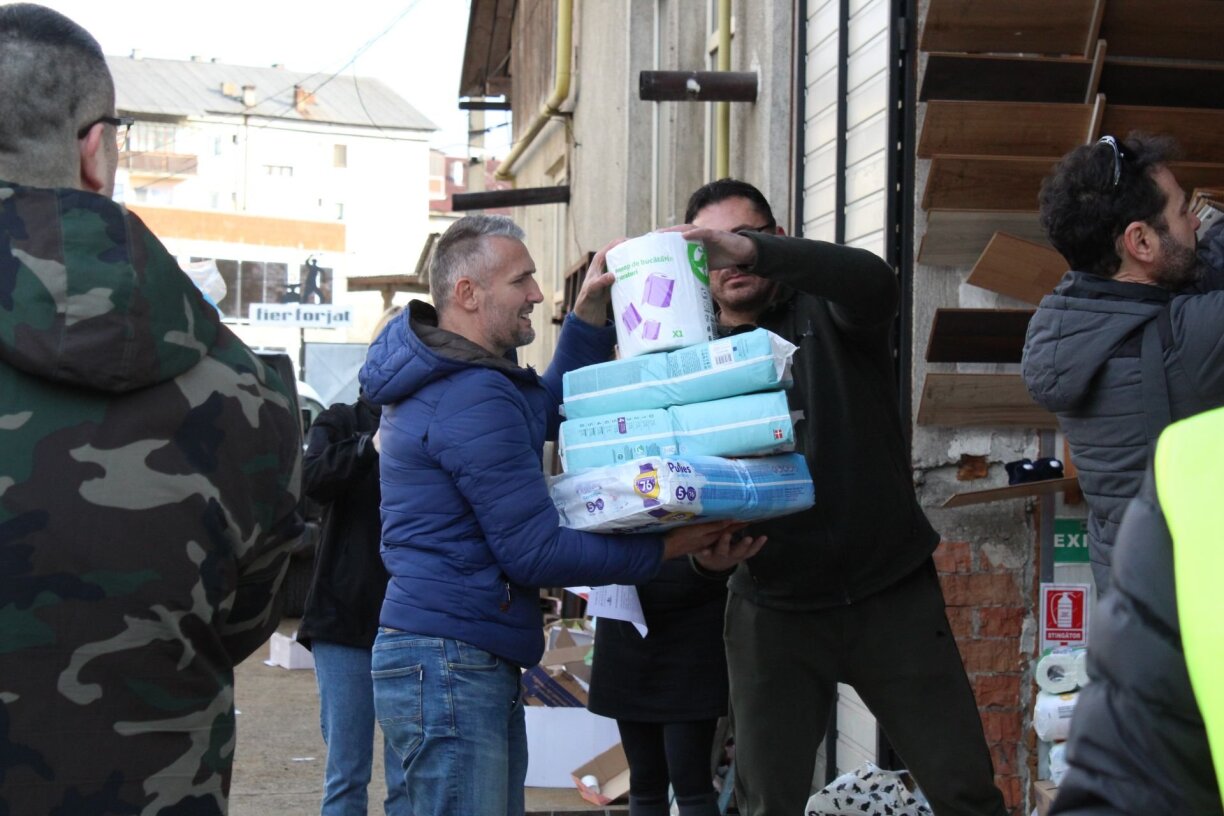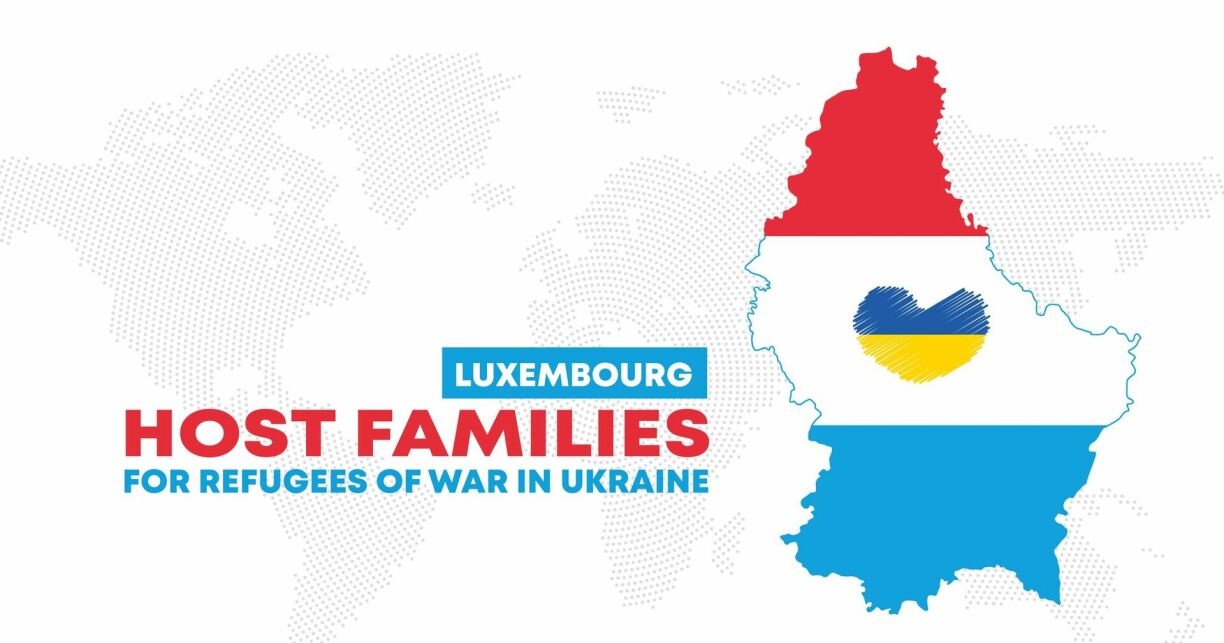
Collections are being organised all over Luxembourg to help the Ukrainian people, who are subject to Russian attacks and bombings. Groups have been created, links have been made, and initiatives have been born thanks to the impetus of some residents of the Grand Duchy.
Our colleagues from RTL 5 Minutes spoke to Suzanne, a resident of the municipality of Junglinster, who launched a collection at the end of February. “The father of my children is Ukrainian,” she explained in a message posted on social networks.
“When I saw how the situation was developing, I said to myself ‘we have to do something’. I tried to mobilise people around me to collect clothes, shoes, and medicine. Then, a few days ago, the municipality contacted me to offer help.”
A storage room and a means of transport were made available to her by the municipal authorities. “The donations are sent to Konz, where a Ukrainian association takes over and sends the loads to Poland, at the Ukrainian border,” she explains.
Since the launch of what she describes as a “continuous collection”, it is clear that the daily life of this Luxembourgish resident has changed a lot. Suzanne has collected clothes, shoes and even set up a digicash (‘Don Ukraine’), “at the request of many people who wanted to give in this way”.
With these funds, she will buy sheets, hygiene products, bandages, and medicines. Our colleagues from RTL 5 Minutes spoke to her on the phone as she was heading to the pharmacy: “I managed to collect €2,000 in donations to buy medical equipment. It will go on the next lorry.”
That lorry will leave “on Friday or Monday” for Konz. Until then, it will still be possible to donate by going to the municipal depot in Junglinster (8, Rue Ronnheck, L-6118 Junglinster). The municipality asks that, “if possible”, people who want to contribute come “between 8am and 5pm”.
Other municipalities, such as Hesperange, have launched collections “for the benefit of Ukraine”. Therefore, you don’t necessarily have to go all the way to Junglinster to donate.
And for those who prefer to donate from home, they can also do so via the non-profit organisation ‘L’Ukraine’ which has set up an online donation platform. Médecins Sans Frontières (Doctors without borders) and the Luxembourg Red Cross have also launched appeals for donations in recent days.
Internet users were among the first to mobilise to send aid to Ukraine. Our colleagues from RTL 5 Minutes spoke to Margot, a young woman who recently opened a group called ‘Lëtzebuerg hëlleft der Ukraine’ (“Luxembourg helps Ukraine”) on Facebook.
In a few days, she has gathered nearly 200 internet users who now follow the operations of a Romanian association (CERT Transilvania) at the Ukrainian border. “Originally, it was an association that brought help to Romanians living in the mountains and remote areas of Romania,” she explains.
With 160 active members, CERT Transilvania is now focusing all its efforts on the border to help Ukrainian refugees. “30 tonnes of goods have been delivered, we have helped refugees to arrive in Cluj and Sibiu and we hope to gather volunteers for the future,” the association writes on its page.
Margot has become the intermediary for the group, which continues its actions at the gates of Ukraine. “They hope to be able to obtain a visa from the Romanian government to cross the border and bring medical aid to the Ukrainians,” she says.
“It was a friend who put me in touch with the association,” she explains. Margot says she is “doing everything to make it transparent, so that members can follow CERT Transilvania’s initiatives and know that their donations are reaching their destination” via her group.
Another group has also been set up to find families willing to host Ukrainian refugees. More than 1,800 people have become members and offer to help in some way with refugees or families who want to host them.

It should be recalled that the National Reception Office has been tasked by the government to find and free up reception capacities so that Luxembourg is in a position to receive Ukrainian war refugees. The Red Cross and Caritas are involved in this process.